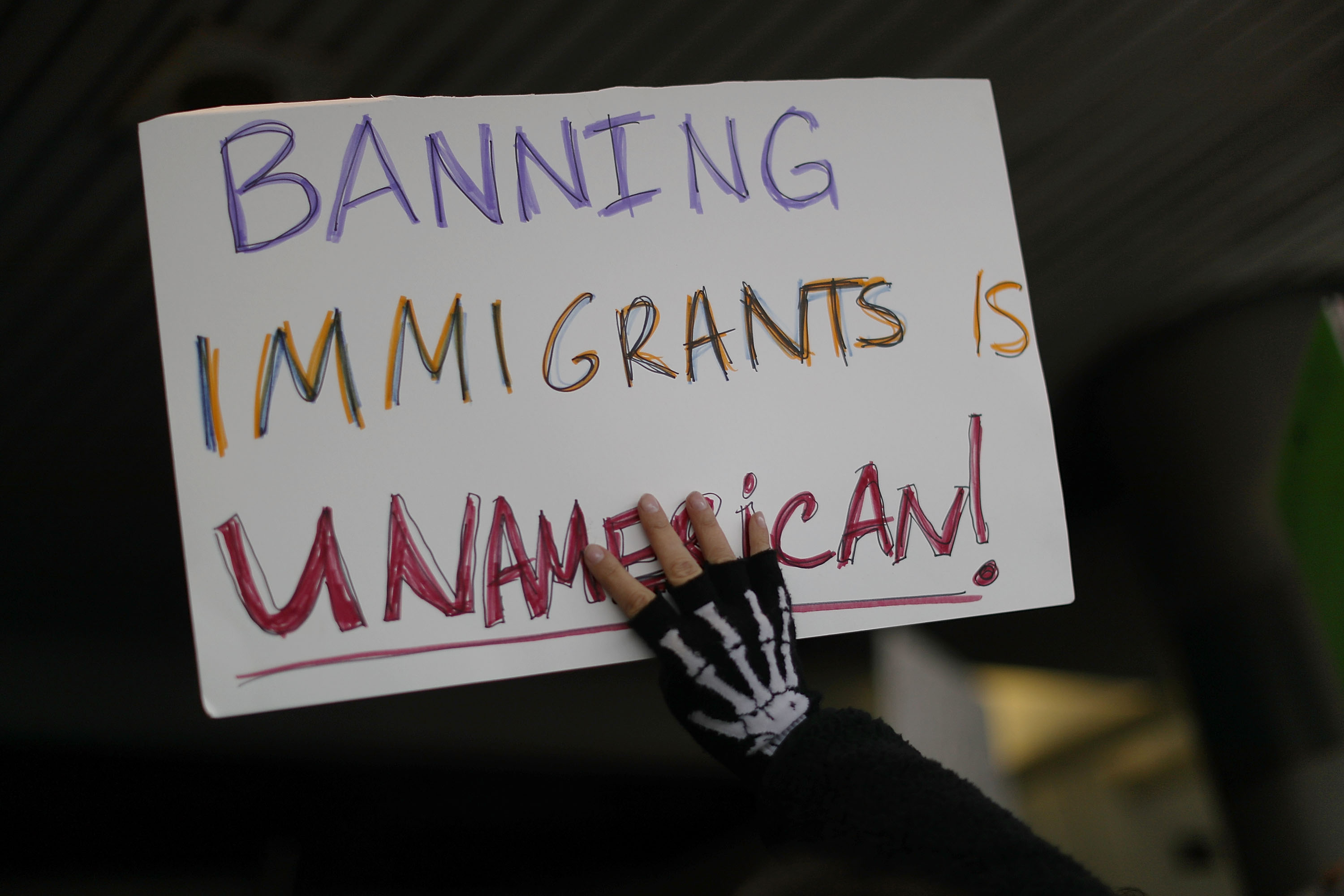Federal judges from Hawaii and Maryland have halted the implementation of President Donald Trump’s second executive order that temporarily restricts travel from certain Muslim-majority countries and suspends refugee admissions. The order, which was supposed to take effect yesterday (March 15) at midnight, would have blocked people from Libya, Iran, Somalia, Sudan, Syria and Yemen from entering the U.S. for 90 days and frozen refugee intake for 120.
This is the second time that federal courts have halted Trump’s executive actions related to travel and refugees. The first order, issued on January 27, sparked legal challenges across the country on grounds that the policy was driven by "discriminatory animus" towards Muslims. On February 9, an appeals court kept in place a lower court’s decision to stop the order from taking effect.
Last night, just hours before the order that some critics call "Muslim Ban 2.0" was to take effect, Hawaii-based district court judge Derrick Watson imposed a nationwide stay via Hawai’i v. Trump. The case was brought by an imam who feared that his Syrian mother-in-law would be denied a travel visa and the state of Hawaii, which argued that it would lose tourism dollars and university fees paid by students from the six prohibited countries. Watson’s 43-page opinion has several clarifying passages specifically on the anti-Muslim bias of the policy, including these:
Equally flawed is the notion that the Executive Order cannot be found to have targeted Islam because it applies to all individuals in the six referenced countries. It is undisputed . . . that these six countries have overwhelmingly Muslim populations that range from 90.7% to 99.8%… The illogic of the Government’s contentions is palpable. The notion that one can demonstrate animus toward any group of people only by targeting all of them at once is fundamentally flawed.”
"…[A] a reasonable, objective observer…would conclude that the Executive Order was issued with a purpose to disfavor a particular religion, in spite of its stated, religiously-neutral purpose.”
Ohio State University law professor Amna Akbar agrees. “This is anti-Muslim bias plain and simple, no matter what gift wrap the Administration tries to put on it,” she told Colorlines this morning. “It’s heartening to see courts exercising judicial review in a manner that recognizes that there is no neutral intent in President Trump’s executive orders.”
In his opinion, Watson cited statements that Trump and close advisors, including Rudolph Giuliani and Stephen Miller, had made about blocking Muslims from entering the United States. In one interview, Giuliani said that Trump wanted him to "put a commission together" to construct a legal justification for a "Muslim ban."
The second rebuke came this morning from a Maryland district court judge, Theodore D. Chuang. In IRAP v. Trump, a case brought by the International Refugee Assistance Project, the Jewish refugee assistance organization HIAS and individual plaintiffs, the judge decided to block the travel ban but not the refugee freeze.
Like Watson, Chuang cited Trump’s anti-Muslim statements in his opinion:
"These statements, which include explicit, direct statements of President Trump’s animus toward Muslims and intention to impose a ban on Muslims entering the United States, present a convincing case that the First Executive Order was issued to accomplish, as nearly as possible, President Trump’s promised Muslim ban."
Another legal challenge to the executive order remains before the Washington state judge who suspended the first one. Judge James Robart heard arguments yesterday in a challenge brought by the states of Washington, California, Maryland, Massachusetts, New York and Oregon.
The Department of Justice has indicated that it will continue to fight for the order. Trump responded to the Hawaii ruling during a rally last night in Nashville:
You don’t think this was done by a judge for political reasons? No! This ruling makes us look weak! … I think we ought to go back to the first [ban], and go all the way. That’s what I wanted to do in the first place.
Mariaelena Hincapie, executive director of the National Immigration Law Center, reacted to Trump’s comments in Politico: "[President Trump] should just continue talking, because he’s making our arguments for us."
